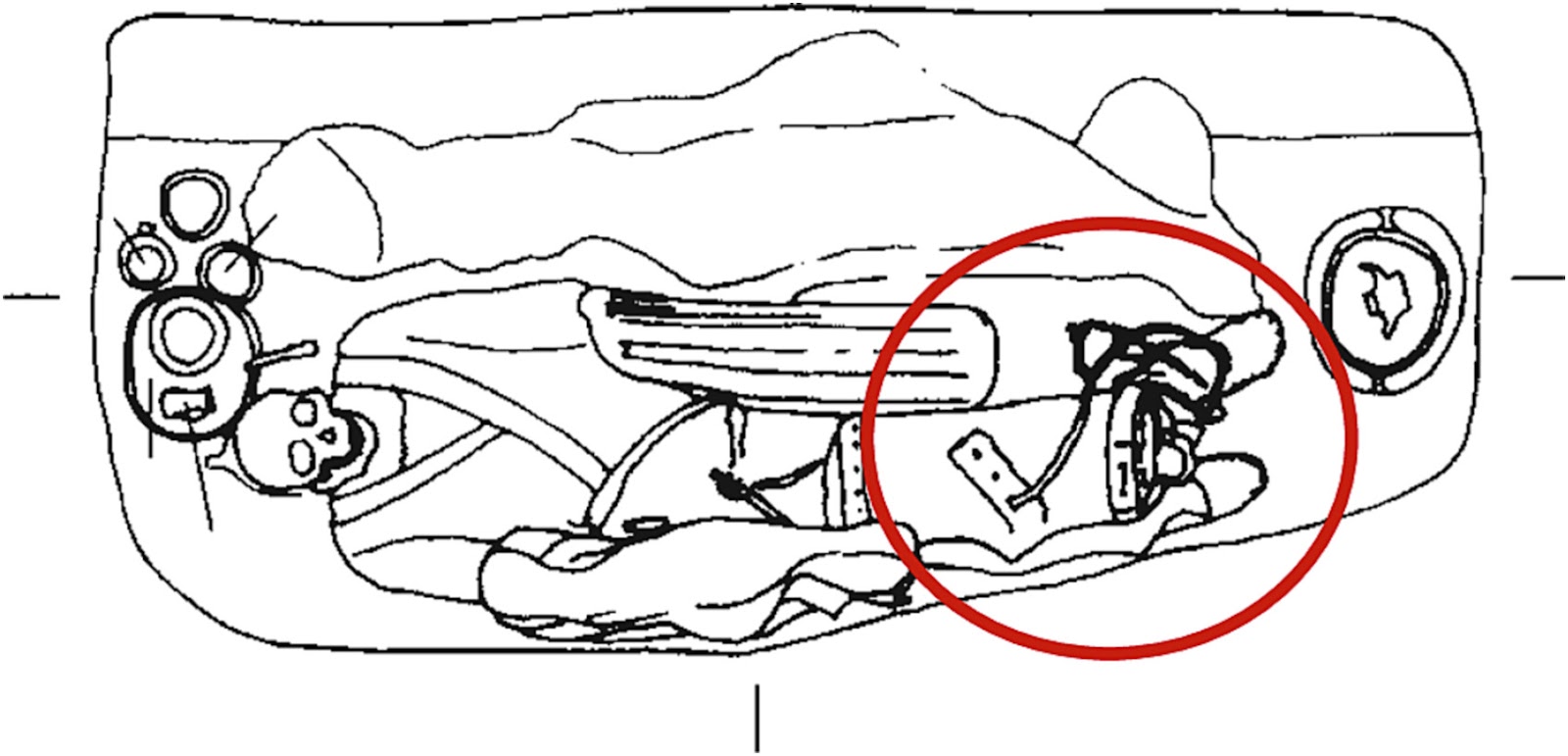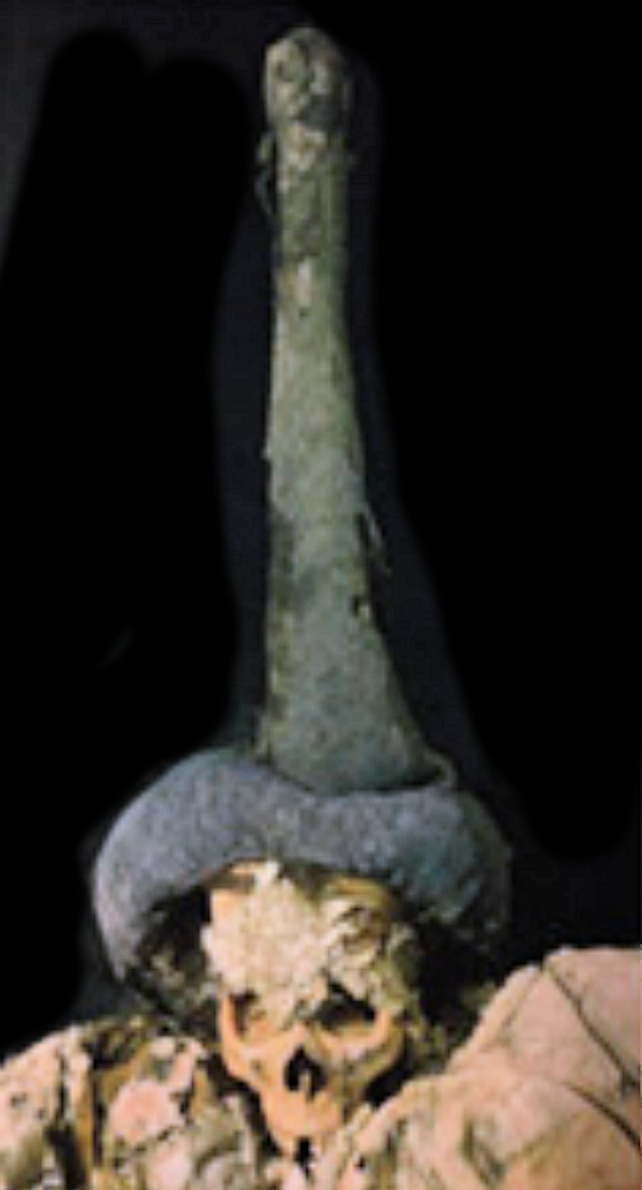Salvete Omnes,
One of the oldest saddles found to this date - the Subeixi/Subeshi culture cemeteries (in Turpan/Turfan, Xinjang in PRofChina) contained saddles and horse tack, along with other martial culture and human mummified burials. Similar to the Altai Saka of Pazyryk/Ukok (known from the Soviet Union prof. Rudenko's discoveries and alter research in Russian Federation and Mongolia), these horse people, perhaps the Tocharians and/or the offshoot of the Saka of the pointed hats or Tigraxauda as known in the ancient Persia eg
 |
| Apadana, Persepolis, the Saka delegation leading their tribute to Darius I, perhaps their own special war horse, a different type or breed |
 |
| king Skunkha |
the Behistun Darius the Great's inscription
 |
| Issyk |
, I wrote in 2011 a little bit about old Saka saddles in this post. And in this a did a sketch of Saka Tigraxauda.
Patrick Wertmann et al., The earliest directly dated saddle for horse-riding from a mid-1st millennium BCE. Female burial in Northwest China (2023), the article with illustrations - here text, or pdf.
 |
| Subeixi saddle in more technical detail |
 |
| comparison between saddles from Yanghai, Tuekta, Subeixi and Pazyryk no 3 |
 |
| saddle - different views - oxen, or perhaps goat |
and more
 |
| Yanghai cemetery |
Saka of the Peaked Hat
the famous scale armor -
bow with gorytus - ATARN's Karpowicz & Selby article from 2010
Prof. Mair's article about the Tarim basin mummies from Penn State.
Valete









https://www.sciencedirect.com/science/article/abs/pii/S2352226721000908 The invention of twill tapestry points to Central Asia: Archaeological record of multiple textile techniques used to make the woollen outfit of a ca. 3000-year-old horse rider from Turfan, China
ReplyDelete